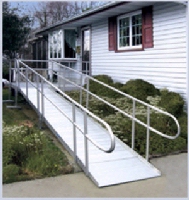 Safety vs Independence
Safety vs Independence
When you have a senior parent, the concern for their ability to maintain their lifestyle can be a significant worry. Almost without exception, senior citizens resist the idea of moving out of their house and into an assisted living facility or nursing home. You as a child of a senior citizen may see issues of safety if your aging parent continues to live independently. If their spouse has passed on, there may be issues of loneliness and depression. Hallways and doors of old homes are often not built to accommodate walkers or wheelchairs. And the vision of your children’s Grandma or Grandpa falling and being unable to reach you for help is frightening. Then there is the financial side of maintaining their home and paying the mortgage if it is still active.
So the question is whether you should try to help your aging parent with moving on to an assisted care facility or if it can be worked out for them to stay in their home. There are some compelling reasons to help them stay in the house they have lived in for so long if there are ways to overcome the problems. Studies show conclusively that senior citizens that live in their own homes are happier and healthier. Your parents may have long lasting friendships in the neighborhood who provide tremendous emotional support and can look in on your parent from time to time to assure they are safe. And the ability to get out in the yard, feed the birds, keep a pet or tend a small garden has untold health benefits both mentally and physically for a senior citizen.
Steps can be taken to provide for the unique needs of a senior citizen if you want to work with them to keep them in their home. The family and friends of the senior citizen can take on the chores of upkeep of the home, yard work and repairs so the home continues to remain safe and viable as a living space. This also reduces the expenses of home ownership.
It is very likely that from a financial point of view, you can work with your senior citizen to reduce the costs of staying in their home. If they still have a mortgage, the outstanding balance may be quite low but the payment still high. By working with the mortgage company, you may be able to refinance the loan to drop the payment considerably and make it more affordable even than living in assisted care or a nursing home. You can also work with utilities companies and credit sources who may have programs to assist the elderly in owning their own home. By utilizing the resources already in place, you may be able to get your aging parents costs into a reasonable range and help them establish a budget that allow them to live comfortably on social security and whatever retirement funds they have.
You can also find home nursing care and put good technology to use to make it possible for your parent to have quality care in the home and to have the resources to be able to reach out to you in the event of an emergency. Services like these do well at providing for the needs of senior citizens so they can virtually spend the entire remainder of their years living in their home where they are happy.
However, some seniors simply will not allow the intrusion into their 'private' space by commercial non-medical caregivers that are strangers to them. The benefit of allowing seniors to live in their familiar surrounding is offset by the upset they feel due to the caregiver strangers in their home. Depending on their state of dementia, they very well may not feel safe in their home any longer.
Even if the senior did agree, commercial care providers is a costly undertaking. All commercial non-medical caregivers require a minimum number of hours per visit. So even if your senior only needs to be looked in on once a day, you
could be paying for three hours everyday. In today's market, that's $400-$500 a week! That kind of spending can mount up very quickly to the point that it is cheaper for seniors to be living in a 24 hour assisted living center for less cost per month for their present mortgage (or rent) plus commercial care.
Let's face it, if the senior is going to be upset either with the strangers in their home, or having to move into a new environment, might it not be better for them to be in an utterly safe (24 hour care) environment than a compromise situation (living at home and being visited only once in a while by commercial caregivers)
driven by cost?
The key to making any decision work is to enlist the partnership of your senior parent, if they are able. By sitting down with him or her, you can review that keeping them at home is a shared project and that they should do all they can to make this work. They will be enthusiastic to make that kind of effort and stay in the home they love so much. If you broach the subject early on, there is a better chance that even a transition to an assisted living facility (or residence) may be in the cards.